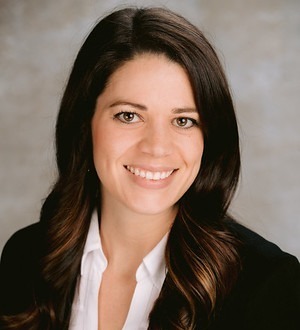PUBLISHED APRIL 12, 2023
In today’s world of bank failures, real estate and stock market declines, bombastic cyclones, tornadoes, floods and atmospheric rivers, the only thing for certain appears to be the uncertainty and potential for change in the future. This potential for uncertainty underscores the need for flexibility in the seemingly black-and-white world of estate planning and the tax-efficient transfer of wealth. A gift needs to be “completed” in order to achieve estate tax savings.
That said, current law provides a robust lifetime estate tax exemption in the amount of $12.92 million per person ($25.84 million for a married couple). Current law also provides that this exemption will fall to $5 million per person ($10 million per married couple) on Jan. 1, 2026. The 2026 estate tax exemption is adjusted for inflation and is estimated to be $6.08 million per person ($12.16 million for married couple) for 2026.
For those with net estates of more than $6 million per person ($12 million per married couple), planning should be considered to avoid the 40% estate federal tax on amounts in excess of the 2026 estate tax exemption.
However, the fear of economic uncertainty increases the need for flexibility in any such plan. Many clients do not wish to move significant wealth to the next generation if all possibility of access is lost in the event that their needs change or a loss is suffered. The following tongue-twisting alternatives were selected because of the flexibility that may be available for future access by the client should that be needed.
Note that the 2023 estate tax exemption also provides a 2023 gift tax exemption in the same amount. This permits the shift of substantial wealth without triggering a gift tax liability. That gift tax exemption will also fall or be reduced on Jan. 1, 2026.
From an asset protection perspective, if you are directly named as a trust beneficiary and the trust provides for outright distribution of trust assets, then state law will typically permit creditors to access those assets. For example, California Probate Section 15304(b) provides “If you are a beneficiary of a trust…then a creditor may reach the maximum amount that the Trust could pay to you or for your benefit.” For this reason, outright distributions for beneficiaries of even simple trusts should include some protective provisions to protect from third-party attacks such as those from divorce, lawsuits, creditors and even bankruptcy trustees. A simple provision would be to retain the funds in trust empowering the trustee to make “discretionary distributions of principal and income.”
This type of tax planning typically provides better or enhanced asset protection for both you and your family or loved ones. This is increasingly important in today’s uncertain and litigious world.
The DAPT, or Domestic Asset Protection Trust
The DAPT is a self-settled trust (meaning you created the trust for yourself) that is created in one of 20 states in the United States that permit a self-settled trust to provide protection from your creditors, lawsuits and divorce (for example, in-laws, outlaws and other predators). The 20 states permitting a DAPT are:
DAPT StatesAlabamaAlaskaConnecticutDelawareHawaiiIndianaMichiganMississippiMissouriNevadaNew HampshireOhioOklahomaRhode IslandSouth DakotaUtahVirginiaWest VirginiaWyomingTennesseeEach state has varying laws and have different advantages and disadvantages. Careful analysis is needed to select the best jurisdiction.
The DAPT does not provide direct financial access to your wealth, but the grantor (the person who created and funded the trust) may be designated as a beneficiary. Distributions to you as the grantor may be subject to the separate discretion or approval of an independent administrative trustee who can help cut off third-party attacks or unwanted claims.
A professional trustee is most often used as the distribution or administrative trustee, while the client retains full investment control as the investment trustee. A version of the DAPT is often referred to as the hybrid DAPT. With a hybrid DAPT, the client or trust grantor is not initially named as a beneficiary. Another person, typically a “trust protector” is granted a non-fiduciary special or limited power of appointment to add beneficiaries to the trust. This addition could include the client as an individual or as a member or group of a class of beneficiaries.
Note that some concern continues for the use of a DAPT by a resident of a non-DAPT state may not be successful.
The SPAT, or Special Power of Appointment Trust
The SPAT allows access to trust assets without directly being named as a beneficiary. You are not a trustee or trust beneficiary, but a trusted person can direct distribution to you at some future, safe date.
Since you are neither a trustee nor a beneficiary, greater asset protection is provided. The trust itself is not characterized as a “self-settled trust” subject to the state law jurisdiction referred to above for DAPT. For example, California probate code section 681 provides: “Property covered by a special power of appointment is not subject to creditors of the donor or the donor’s estate or to the expenses of the donor’s estate.”
SLATs, or Spousal Lifetime Access Trusts
SLATs allow each spouse to be a beneficiary of a trust formed by the other spouse. In any of the community property states such as the states listed below, the use of a post-marital agreement is recommended to transmute assets, income and debt from community property to separate is recommended. The community property states are:
Community Property StatesAlaskaArizonaCaliforniaColoradoFloridaIdahoIllinoisLouisianaNevadaNew HampshireNew JerseyNew MexicoNorth CarolinaOregonSouth DakotaTennesseeTexasWashingtonWisconsinEach spouse creates and funds a trust for the benefit of the other spouse. This can remove that property from one spouse’s estate. Care must be taken to not trigger the reciprocal trust doctrine, which is triggered if the two trusts are: (1) interrelated and (2) an arrangement that to the extent of mutual value leaves the spouses in the same position as they would have been in had they created themselves as life beneficiaries. This typically occurs if the trust provisions are too similar.
In order to avoid the reciprocal trust doctrine, care should be taken to build in differences between the two trusts. Different trustees, governing law, timing of gifts, designated beneficiaries, distribution standards, withdrawal rights and powers of appointment should all be considered when drafting SLATs for a married couple.
The unforgiving all-or-nothing approach to planning to minimize or avoid estate tax is no longer required. Careful planning can provide greater flexibility. Today’s uncertain economic environment underscores the need to plan to better protect assets and your family’s legacy from third-party attacks.
The most important consideration is whether your estate and asset protection planning satisfies your long-term goals without regard to the tax savings and asset protection benefit. Too often, people quickly select a popular acronym to use for asset protection or tax planning with little consideration of their long-term goals. Only after your long-term goals are clearly identified should you search for the most tax efficient tools to use.
https://www.kiplinger.com/retirement/2026-estate-planning-spats-slats-dapts
























